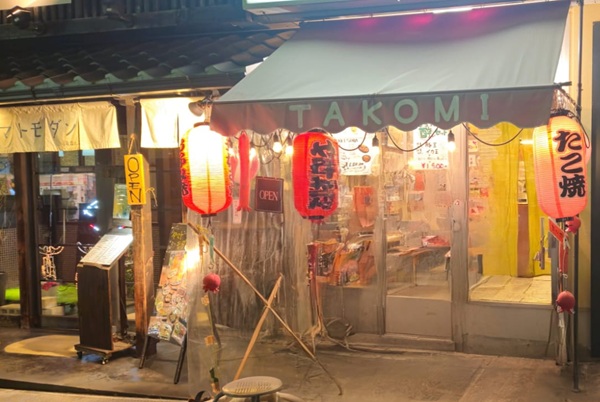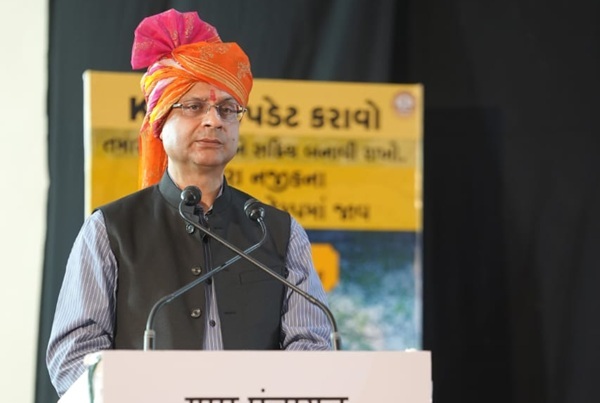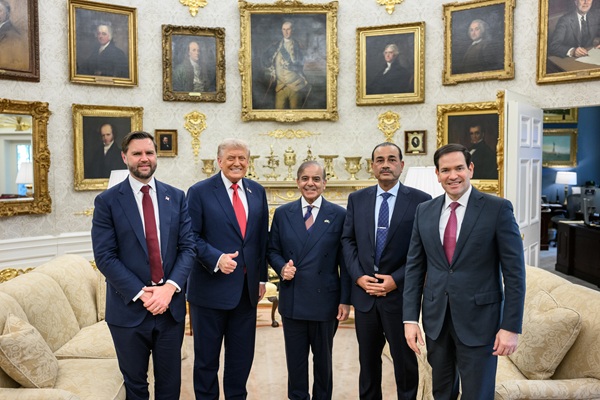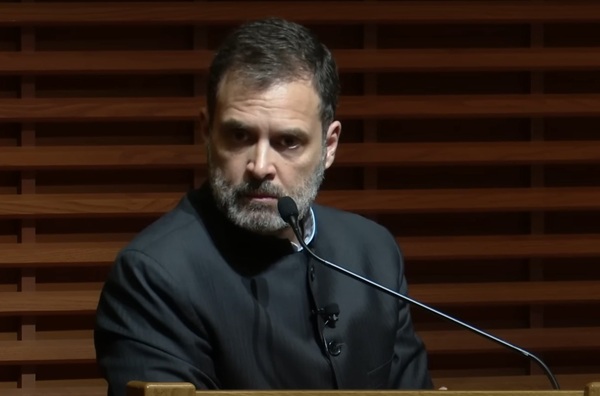.png)
The Real Economics of Trust, Flexibility, and Showing Up Anyway
When a late-night meal reminds you that progress comes less from perfect plans and more from showing up with warmth and making room for others.

Phynix is a seasoned journalist who revels in playful, unconventional narration, blending quirky storytelling with measured, precise editing. Her work embodies a dual mastery of creative flair and steadfast rigor.
November 17, 2025 at 4:11 AM IST
Dear Insighter,
Family meals are their own peculiar form of economics. No matter what time you need to leave, the real departure is always 30 minutes later. If I want to reach a restaurant at 7:30 pm, I tell everyone we have to be there by 7. It still doesn’t always work. Someone is suddenly wearing shorts or slippers to a place with table linen. Someone has forgotten the house keys. Someone insists the cab is five minutes away even though the map clearly shows it looping around the wrong building. And yet, despite poor coordination, broken plans, delays, and the occasional argument, the ritual survives.
Food is the glue in Asian cultures. We celebrate over it, we fight over it, we reconcile over it. I’ve seen this everywhere: in Hanoi, where friends forget their worries over pho and beer; in Seoul’s streets, where office workers decompress over pajeon and soju; in Tokyo’s izakayas, where people in suits lean over yakitori and sake as if the table itself is holding them together; in Mumbai’s family restaurants, where tables are a cacophony of decision-making and laughter (with a side of reprimand toward little ones for mischief or restlessness).
But there’s one core memory from Nara (a town famous for its deer park, and half hour away from Osaka) that keeps returning to me because it taught me something about life.
It was past 10 pm, and every restaurant in that sleepy town seemed shut. Hunger was turning us from travellers into wanderers. A Bangladeshi man closing his Turkish kebab shop kindly pointed us toward a place he thought we’d like, but it wasn’t the local meal we were craving. We thanked him and continued walking.
Then we heard laughter.
A family—loud, joyful, mid-meal—sat outside a tiny place called Takomi and waved us over as if we had been expected all evening. They weren’t the owners; just diners. But with animated gestures and broken English, they insisted we step inside, pointing toward their food and calling it “awesome.” The restaurant was unassuming: two tables inside, handwritten notes from travellers, and lighting that made everything feel intimate and slightly magical.
We ordered mix okonomiyaki, yaki soba, and yaki udon. The family kept checking on us with the kind of warmth only strangers who decide you’re momentarily theirs can offer. And then, one of the two women slipped out mid-meal and drinks, walked to a nearby supermarket, and returned with a packet of wasabi chips—“for you, Japanese flavour!” she said, beaming. Their daughter, who was learning English in school, came over to practice a few lines with us. We ended up taking photos together, giddy with gratitude on a freezing night.
We never got their names, but we still remember their faces, their laughter, their generosity. The food was spectacular, but the experience—the spontaneous coordination among strangers, the effortless hospitality—was incomparable.
What struck me most is that nothing about that night was planned. And I’m fairly certain that the restaurant I originally wanted to go to wouldn’t have had the same warmth.
It might sound like a stretch, but doesn’t our economy run the same way? Not on flawless design, but on messy coordination. Not on rigid plans, but on the trust and adaptability that allow ideas to survive contact with reality.
Michael Debabrata Patra writes about India’s gem and jewellery industry, a sector that has seen doors close and open for thousands of years. Even as US tariffs disrupt flows, the UK trade deal and diversification into new markets show a familiar truth: resilience is rarely born of certainty. It comes from adjustment, reinvention, and the quiet confidence that somewhere, someone will make space for you at a different table.
Ashima Goyal continues that line of thinking in her critique of inflation targeting drifting into groupthink. With inflation now tracking below 2%, India is operating with a policy framework crafted for an inflation-prone world. It’s like following an old recipe after the ingredients have changed. Flexibility, not doctrinal loyalty, will determine whether the framework remains relevant.
Madhavi Arora explains why inflation’s statistical low is not just a number but a sign that our policy compass needs recalibration. BasisPoint Groupthink warns that our fiscal deficit is being met through one-offs—much like picking up a dinner tab with a lucky lottery win. Yield Scribe shows how long-end spreads remain elevated despite the RBI’s best efforts, reflecting a market that senses underlying strain.
And Arvind Mayaram widens the lens further. India’s energy transition, he writes, is not just a climate imperative but a civilisational pivot. It needs circular finance, where capital circulates like energy in a healthy ecosystem. You can’t fund the future on straight lines; you need loops, reinvestment, and coordination among institutions.
When the cuisine changes, when the ingredients change, when the world shifts, you survive by reinventing the table, not by insisting it stay the same. From there, the week’s other pieces fell into place with clarity.
Shubhada Rao, Vivek Kumar, and Yuvika Singhal highlight how defending the rupee has drained liquidity, creating a new coordination challenge. And Babuji K’s piece on GIFT City’s NDF ambitions reveals India’s desire to pull pricing power home—set the dinner time according to our own clock, not Singapore’s or London’s.
Krishnadevan V, writing about regulatory convergence between SEC and SEBI, captures a subtle but significant shift: away from rule-hoarding and toward principle-based trust. It’s spring-cleaning in Washington and mirror-polishing in Mumbai, but the goal is the same.
Trust also runs through Sangeeta Jain’s examination of tax reform and the move from punishment to partnership. R. Gurumurthy questions whether SIPs have become a ritual divorced from fundamentals. Chandrika Soyantar warns that systemic risk has quietly migrated to Big Tech, where AI and data-centre financing create vulnerabilities we barely understand.
The AT1 story continued its long afterlife too. Rahul Ghosh reminds us what AT1 instruments were meant to be: risk absorbers. TK Arun warns against reading the Swiss AT1 ruling as a precedent for India. Banker Emeritus exposes the moral hazard in the YES Bank rescue narrative. And Mint Owl reminds us of who got wiped out and who got forgotten.
Trade, elections, and cities added their own texture.
Ajay Srivastava argues that the US, having acknowledged India’s near-exit from Russian oil, should roll back punitive tariffs before any trade talks. Nilanjan Banik shows how India is building FTAs elsewhere, with the EU and New Zealand, leaning into sustainability as an emerging advantage. Ashok K. Kantha unpacks Trump’s “G2” comment and reminds us that power remains multipolar.
Amitabh Tiwari’s two pieces reveal how Bihar’s election became a study in turnout and social arithmetic, especially the extraordinary mobilisation of women voters.
And on the home front, Anant Goenka’s piece on cities hit hard. Prosperity is not an abstract number; it’s the commute, the air, the waste, the potholes, the everyday grind. Cities house 3% of our land, 35% of our people, and produce 60% of our GDP, and yet 70% of the infrastructure they’ll need by 2047 does not exist.
Srinath Sridharan and Kirti Tarang Pande bring it all together: growing big is easy; growing right is hard. It takes trust in the system, fairness in distribution, and institutions that don’t fray at the first sign of strain.
Srivastava also writes about the Export Promotion Mission, which is a welcome effort, but one whose success depends on coordination, execution, and adequate funding.
Elsewhere in the corporate world, we’re seeing performances of transparency that sometimes feel more symbolic than substantive. Srinath Sridharan observes that HUL’s move to let shareholders read its CEO’s contract is great theatre, but with slow growth, it feels like confusing the menu for the meal. True openness is in results, not legal disclosures. This lesson was delivered brutally to Lenskart. As Krishnadevan V writes, the market’s unsentimental response to its IPO was a stark reminder that "purpose is breath" might be a poetic flourish, but "profit is oxygen" is a non-negotiable fact of life. The market has little patience for virtue-signalling when the plate is empty.
Perhaps the most profound lesson in corporate maturity comes from a man who knew when to leave the table. Krishnadevan V, in a different piece, reflects on Warren Buffett’s final letter, which was a masterclass in succession—letting go as an act of leadership, not loss. It’s a lesson many Indian promoters, who view relinquishing control as sacrilege, would do well to internalise.
The theme across all these pieces is simple: policy, markets, governance—none of these survive on precision alone. They survive on coordination, trust, shared intent, and the grace people extend to one another when the script breaks.
Until next time, may your company remind you that the world is gentler than it sometimes appears.
Phynix
Also read
- Cyber Risk – Digital Banking’s Biggest Threat Is Closer Than You Think by K. Srinivasa Rao: A look at how AI, zero trust, and rapid response can contain the rising cyber threats haunting digital banking.
- Sorry, But Are We Really Sorry? The New Face of Apologies by Kalyani Srinath: A witty take on the global “apology trend,” where brands say sorry not for mistakes—but for being too good.
- A Moment of Silence for the Loss of Silence by Kirti Tarang Pande: A meditation on reclaiming quiet in a world that now speaks in constant pings.
- The New Face of Bank Leadership by Rahul Ghosh: What modern bank leadership really requires in an age of algorithms and accountability.
- Why Emerging Economies Are Embracing AI by Michael Spence: How emerging markets are using AI to solve local challenges and expand access to services.
- The Key to Unlocking Private Climate Finance by Lynn Forester de Rothschild: Why the climate transition hinges on private capital stepping in with confidence.
- The Educated Radical: How India’s Urban Terror Ecosystem Is Evolving by Lt Gen Syed Ata Hasnain: Educated professionals are reshaping the face of urban extremism in India.



